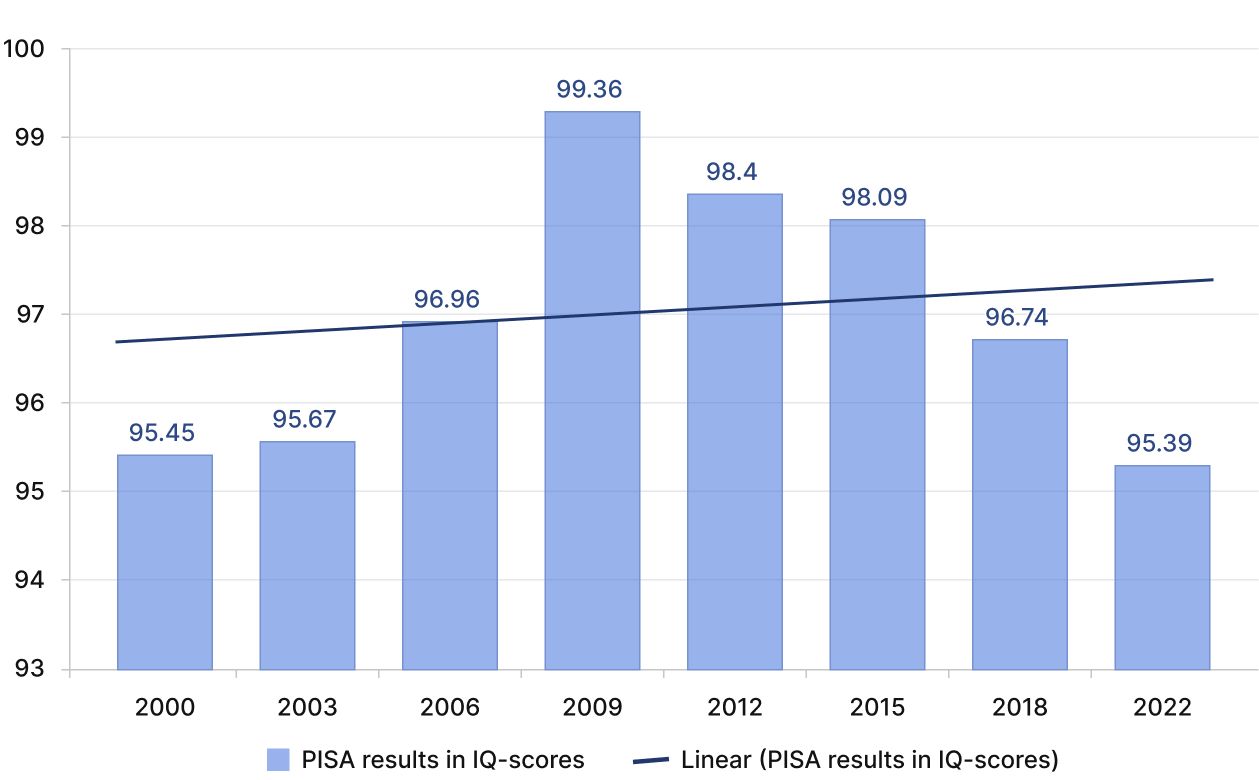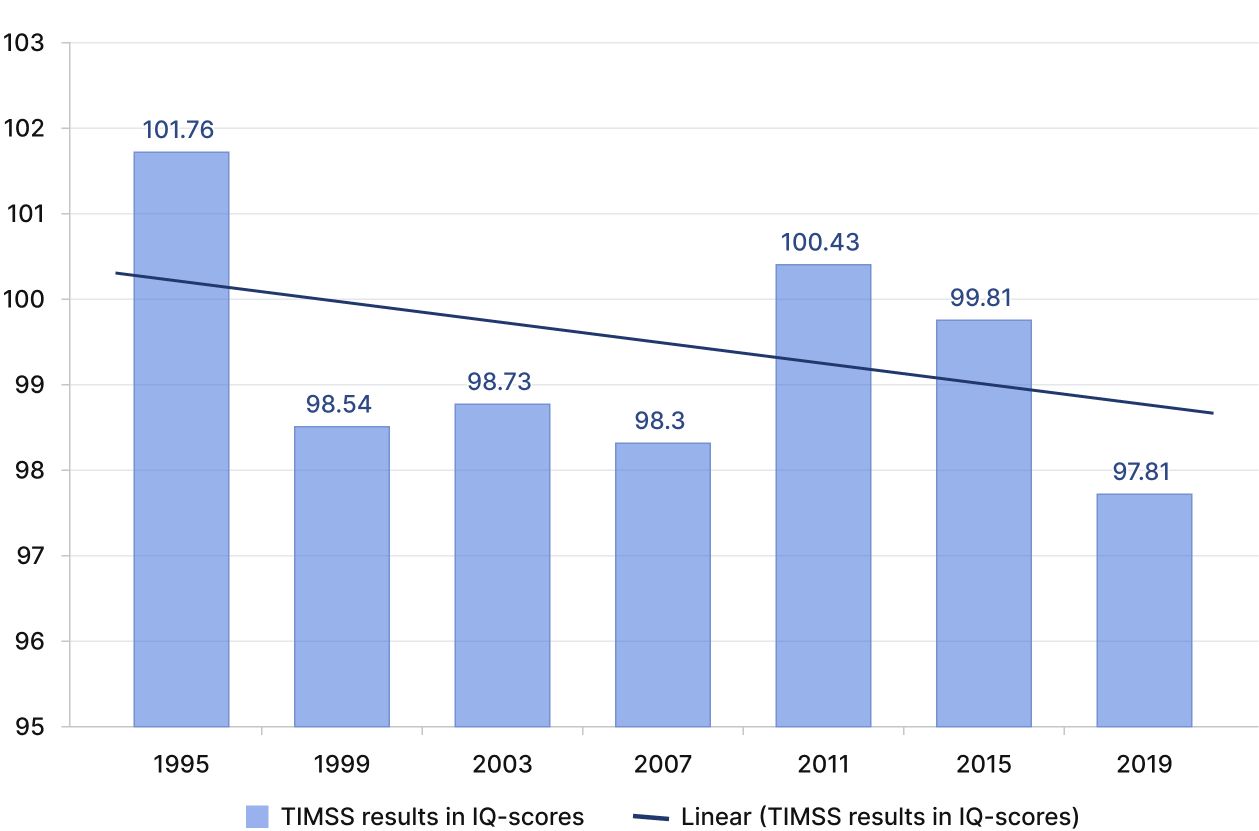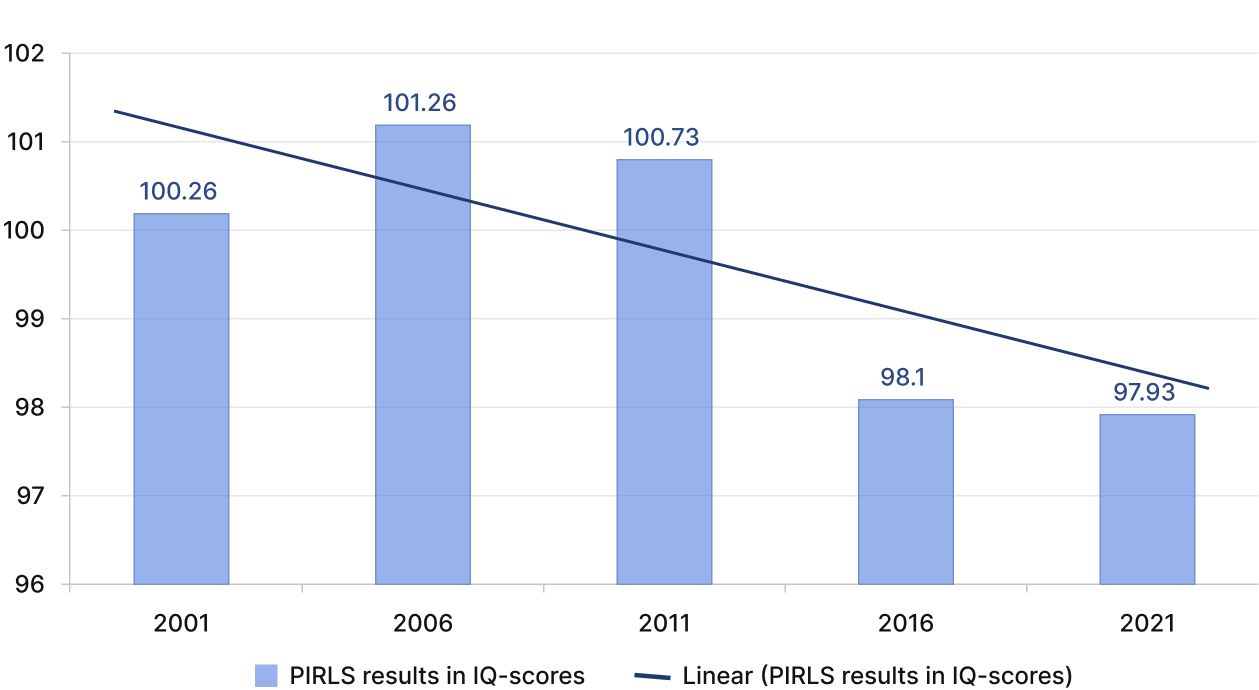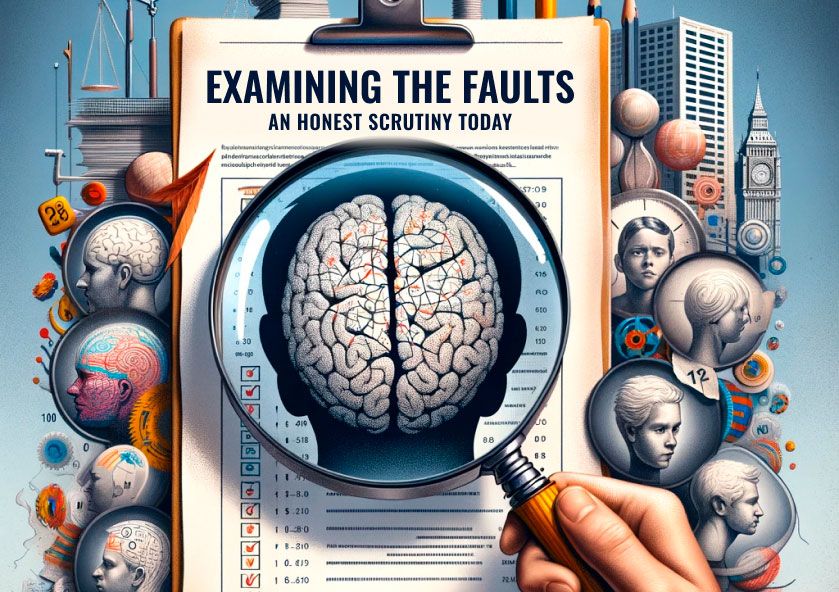Dynamics of the National IQ Level in the USA
The national IQ in the USA has been steadily increasing since the mid-20th century, averaging a 3-point gain per decade. This phenomenon was named the Flynn effect. Various theories have been proposed to explain this effect: improvements in the education system, increased accessibility of education, rising living standards, reduction in family sizes, among others.
However, from the mid-1990s, the growth of the IQ score slowed down, and in the 21st century, it even showed a negative trend. This phenomenon has been termed the negative Flynn effect or the reverse Flynn effect [2].
PISA results in IQ-scores for the USA

Note: Developed based on [3], [5].
As the diagram shows, the national IQ in the USA, calculated using the PISA methodology, grew until 2009, when the score, expressed on the IQ scale, reached 99.36. In subsequent studies, the score declined, and in 2022, it reached its minimum for the analyzed period, at 95.39.
TIMSS results in IQ-scores for the USA

Note: Developed based on [3], [6].
As the diagram indicates, although the results of the studies conducted using the TIMSS methodology varied significantly over different years, the overall trend is downward. In the most recent study in 2019, the score reached its minimum for the analyzed period, at 97.81.
PIRLS results in IQ-scores for the USA

Note: Developed based on [3], [4].
As shown in the diagram, in 2016, the score according to the PIRLS methodology in the United States significantly decreased and continued to decline in the subsequent study – in 2021, when it scored 97.93 on the IQ scale, the minimum for the analyzed period.
Conclusion
Thus, according to the studies conducted on intellectual potential, the USA is currently experiencing negative trends. However, it should be noted that the methodologies whose results were analyzed in this article are not the only ones for measuring intellectual potential. For instance, according to the Intelligence Capital Index based on a study conducted in 2017 [1], the USA ranks first in the world (74.88 – A+).
References:
- Countries by IQ – Average IQ by Country 2024 // World Population Review [Electronic resource]. – Mode of access: https://worldpopulationreview.com/country-rankings/average-iq-by-country. – Date of access: 07.02.2024.
- Dworak, E. M. Looking for Flynn effects in a recent online U.S. adult sample: Examining shifts within the SAPA Project / E. M. Dworak, W. Revelle, D. M. Condon // ScienceDirect [Electronic resource]. – Mode of access: https://www.sciencedirect.com/science/article/pii/S0160289623000156?via%3Dihub. – Date of access: 07.02.2024.
- Lynn, R. The Intelligence of Nations / R. Lynn, D. Becker. – London: Ulster Institute for Social Research, 2019. – 436 p.
- PIRLS 2021 [Electronic resource]. – Mode of access: https://pirls2021.org/wp-content/uploads/2022/files/PIRLS-2021-International-Results-in-Reading.pdf. – Date of access: 07.02.2024.
- PISA Scores By Country // Data Pandas [Electronic resource]. – Mode of access: https://www.datapandas.org/ranking/pisa-scores-by-country. – Date of access: 07.02.2024.
- TIMSS 2019 U.S. Results // National Center for Education Statistics [Electronic resource]. – Mode of access: https://nces.ed.gov/timss/results19/doc/TIMSS2019_compiled.pdf. – Date of access: 07.02.2024.






















